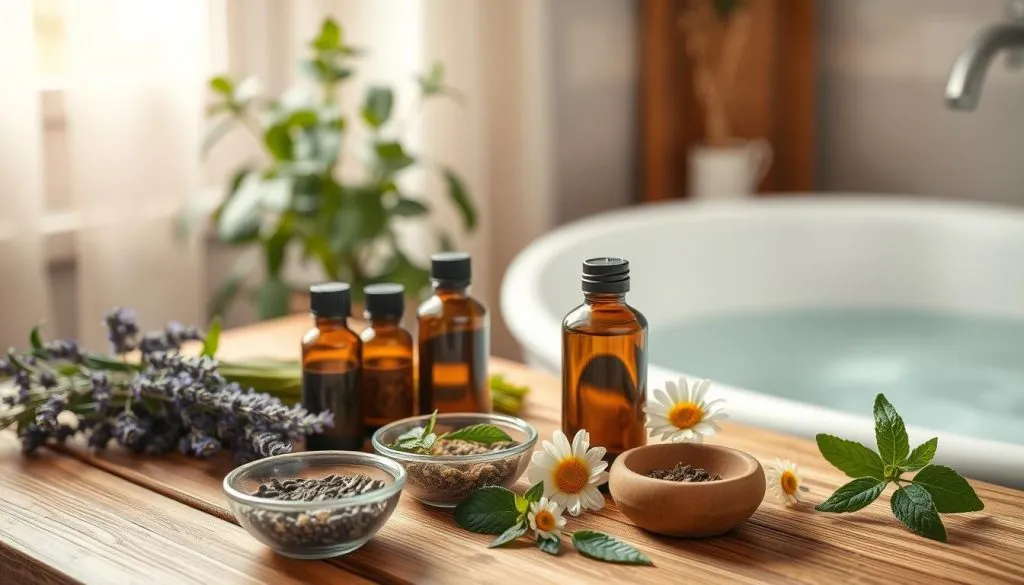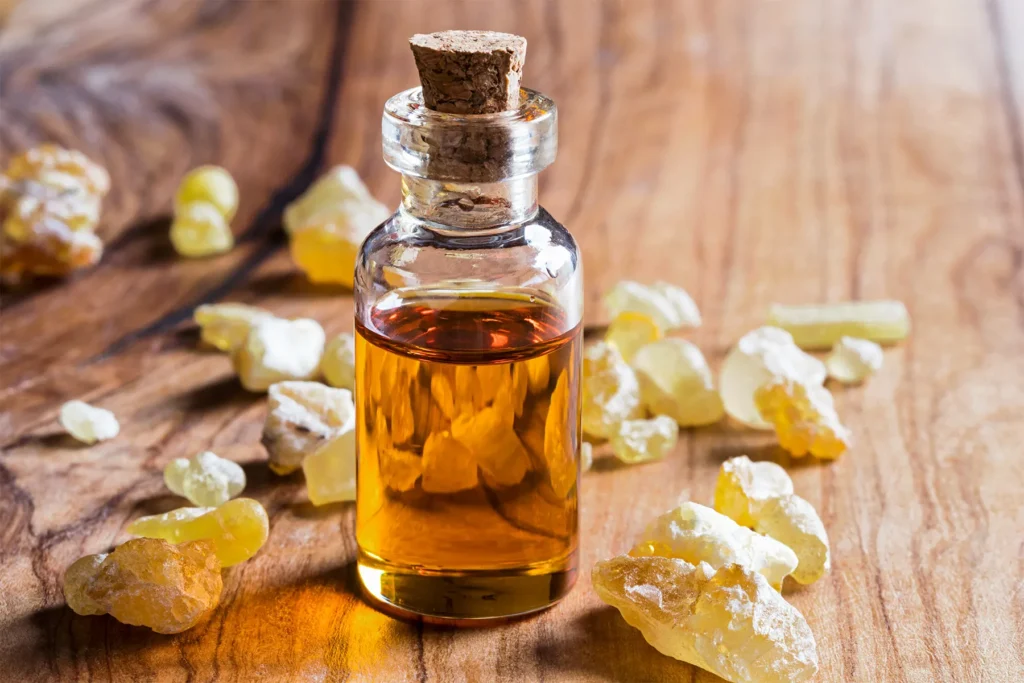If you’re searching for how to use essential oils for bladder infection, you may be hoping for gentle, effective ways to find relief from burning, urgency, and discomfort without immediately resorting to antibiotics. This guide is crafted for wellness-conscious individuals and those interested in natural health, providing step-by-step instructions, safety advice, and the latest research-backed approaches to using essential oils for urinary health.
Whether you’re considering essential oil remedies for urinary tract infection (UTI), cystitis, or recurrent bladder discomfort, you’ll discover actionable advice and practical examples—all written in a friendly, supportive tone designed to empower you.
Understanding Bladder Infections and Natural Solutions
A bladder infection, commonly known as cystitis, is a type of urinary tract infection (UTI) caused mainly by bacteria such as Escherichia coli (E. coli). Symptoms often include pain when urinating, frequent urges, burning, and lower abdominal discomfort.
While antibiotics are the mainstay treatment, some people seek alternatives like essential oils due to rising antibiotic resistance, mild or early symptoms, or a preference for holistic remedies. Essential oils, with strong antibacterial and anti-inflammatory properties, can offer supportive relief—when used safely and responsibly.
Quick note: Severe or persistent bladder infections require urgent medical attention. Essential oils are supportive, but not a replacement for professional care.
How Do Essential Oils Work for Bladder Infections?
Essential oils contain potent compounds that can:
- Disrupt bacterial cell walls and prevent their growth
- Soothe inflammation and ease painful symptoms
- Help prevent biofilm formation (protective layers bacteria create)
- Support overall urinary tract wellness
Key essential oils for bladder infection include tea tree, thyme, oregano, palmarosa, mountain savory, eucalyptus, lemongrass, and clove—all noted for their antimicrobial effects.
How to Use Essential Oils for Bladder Infection: Safe Methods
It’s crucial to use essential oils safely to gain their benefits while avoiding irritation. Here’s how to use essential oils for bladder infection effectively:
1. Abdominal Massage with Diluted Essential Oils
Why use abdominal massage?
Massaging diluted essential oils into the lower abdomen (over the bladder) can support local circulation and deliver active compounds to target tissues.
How to do it:
- Choose 1–3 of the following oils: tea tree, thyme, palmarosa, eucalyptus, or clove
- Dilute 2–3 drops of essential oil in a teaspoon (about 5 ml) of carrier oil (coconut, almond, or jojoba oil)
- Gently massage the blend onto the lower belly, just above the pubic bone, in circular motions for 2–5 minutes
- Repeat up to twice daily during symptoms
Never apply essential oils undiluted directly to the skin. Avoid the genital or urethral area to prevent irritation.
2. Warm Compress for Soothing Relief
Warm compresses can relieve pain and promote absorption of essential oils:
- Dilute 1–2 drops of essential oil in a teaspoon of carrier oil
- Soak a clean cloth in warm (not hot) water, wring out excess, then add the oil mixture
- Place the compress over the lower abdomen for 10–15 minutes, once or twice per day
3. Essential Oil Bath
A warm aromatherapy bath offers both physical and emotional comfort:
- In a small bowl, mix 5–8 drops of essential oils (e.g., palmarosa, tea tree, or eucalyptus) into a tablespoon of neutral bath base (unscented shower gel or Epsom salts)
- Add mixture to the bath, swish to disperse, and soak for 15 minutes
- Exit the bath promptly if you feel any irritation
4. Aromatherapy Inhalation
For broader systemic support:
- Diffuse selected oils such as eucalyptus, thyme, or lemon in an ultrasonic diffuser, breathing the vapors for 20–30 minutes
- This method may not target bladder bacteria directly but can offer calming, immune-supportive effects and augment other remedies
Additional Cautions
- Do NOT ingest essential oils unless directly advised and supervised by a qualified healthcare professional—oral use can be toxic or cause severe reactions.
- Avoid applying oils inside the vagina, urethra, or directly to mucous membranes.
- If you are pregnant, nursing, have chronic illness, or are using prescription medications, check with your healthcare provider before using any essential oils.
Popular Essential Oils for Bladder Infection and Their Uses
| Essential Oil | Main Actions | Application Method | Notes |
|---|---|---|---|
| Tea Tree | Antibacterial, anti-inflammatory | Abdominal massage, bath, compress | Don’t use near mucous membranes |
| Thyme | Potent antimicrobial, anti-biofilm | Massage, compress, inhalation | Must always be well-diluted |
| Oregano | Antimicrobial (especially for E. coli) | Massage, foot blend | Very strong; avoid sensitive skin |
| Palmarosa | Balances urinary flora, soothes | Massage, bath | Skin-soothing; gentle scent |
| Eucalyptus | Purifying, reduces inflammation | Massage, bath, inhalation | Cooling effect, supports respiration & urinary health |
| Lemongrass | Antibacterial, odor-fighter | Massage, bath | Can irritate skin if not well diluted |
| Clove | Reduces bacteria, numbs pain | Compressive massage, foot blend | Use minimal amount; can irritate |
Practical Essential Oil Blends for Bladder Infection Support

Always perform a skin patch test first when using a new essential oil or blend.
Recipe 1: Antibacterial Abdominal Massage Oil
- 2 drops tea tree oil
- 2 drops palmarosa oil
- 1 drop thyme oil
- 1 tablespoon (15 ml) coconut oil
Mix well and apply as described above.
Recipe 2: Comforting Warm Compress
- 2 drops eucalyptus oil
- 1 drop clove oil
- 1 teaspoon jojoba oil
Swirl into a warm, damp cloth and apply to the lower abdomen.
Recipe 3: Aromatherapy Bath for Urinary Comfort
- 4 drops palmarosa oil
- 3 drops lavender oil (soothes, calms)
- 1 tablespoon Epsom salt or shower gel
Dissolve in a full bath; soak for no more than 15 minutes.
Frequently Asked Questions: How to Use Essential Oils for Bladder Infection
Can I put essential oils directly in my bath for a bladder infection?
Only if the oils are well-diluted in a bath base like Epsom salts or unscented shower gel. Pouring undiluted oils into bathwater can cause skin irritation and burning sensations.
Can I ingest essential oils for a bladder infection?
This approach is NOT recommended unless under professional guidance—ingested oils can be toxic and cause gastric distress.
Is it safe to apply essential oils to the urethra or genitals?
No, essential oils can burn and irritate mucous membranes. Only apply diluted blends to the lower abdomen or use via inhalation.
Should essential oils replace antibiotics for bladder infections?
No. Essential oils are a complementary natural remedy for symptom support and should not replace prescribed medication, especially for moderate or severe infections.
Tips for Preventing Bladder Infections Naturally
While learning how to use essential oils for bladder infection is helpful, also include these practices:
- Drink plenty of water throughout the day
- Urinate frequently (do not “hold it in”)
- Wipe front to back after using the bathroom
- Wear loose, breathable clothing
- Avoid irritants such as perfumed soaps or bubble baths in the genital area
- Consider probiotics, cranberry, or D-mannose supplements for urinary health support
If you experience repeated bladder infections, consult a healthcare professional to address underlying causes and create a comprehensive prevention plan.
The Science Behind Essential Oils and Their Antimicrobial Properties

Essential oils are complex mixtures of natural compounds extracted from plants. Their antimicrobial effects arise mainly from phenols, terpenes, and aldehydes that can penetrate bacterial cell membranes and disrupt cellular functions. Studies show that many essential oils have inhibitory effects on E. coli and other common urinary pathogens responsible for bladder infections.
Key Active Compounds
- Thymol (found in thyme and oregano oils): Potent antibacterial and antifungal activity.
- Cineole (Eucalyptol) (in eucalyptus oil): Anti-inflammatory and antimicrobial effects.
- Terpinen-4-ol (tea tree oil): Disrupts biofilms formed by bacteria, making them more vulnerable.
- Geraniol (palmarosa oil): Supports skin regeneration and bacterial defense.
- Eugenol (clove oil): Powerful antiseptic and analgesic effect.
Understanding these compounds helps explain why these oils are prized in managing infections naturally.
Integrating Essential Oils with Conventional Treatments for Bladder Infections
While essential oils offer supportive benefits, pairing them judiciously with antibiotics (when prescribed) optimizes outcomes and may reduce antibiotic resistance risks.
How to Complement Conventional Care
- Use diluted essential oils topically or aromatically while completing antibiotic courses prescribed by your healthcare professional.
- Maintain hydration and follow medical advice strictly.
- Discuss any essential oil use with your provider to avoid potential interactions or contraindications.
- Essential oils may help reduce discomfort and inflammation during antibiotic treatment but should never replace antibiotics without professional guidance.
Creating a Home Protocol: How Often and How Long to Use Essential Oils for Bladder Infection
Many wonder about the frequency and duration of essential oil use for bladder infection management.
Safe Usage Guidelines
- Apply diluted abdominal massage oil up to twice daily during symptomatic periods.
- Use warm compresses once or twice daily for 10-15 minutes.
- Diffuse oils or inhalation aromatherapy can be done up to 30 minutes, 1–2 times per day.
- Aromatherapy baths should be limited to 1–2 times per week to avoid skin irritation.
Important: Monitor your symptoms carefully. If infection worsens or persists beyond 48 hours, seek medical attention immediately.
Case Study Example: A Day Using Essential Oils for Bladder Infection Relief
To illustrate practical use, here’s a sample routine:
- Morning: Begin the day diffusing a blend of eucalyptus and lemon oil for 20 minutes to energize and ease mild discomfort.
- Midday: Apply diluted tea tree and palmarosa blend to lower abdomen with gentle massage.
- Evening: Take a warm bath infused with lavender and palmarosa oils for soothing relief.
- Before Bed: Apply a warm compress with diluted eucalyptus oil to reduce inflammation and promote relaxation.
This layered approach can enhance physical and emotional comfort during bladder infection episodes.
Potential Side Effects and How to Avoid Them
Essential oils are natural but potent. Misuse or overuse can cause side effects such as skin irritation, allergic reactions, or respiratory distress.
Common Precautions
- Always dilute essential oils in appropriate carrier oils.
- Conduct a patch test on a small skin area prior to wider application.
- Discontinue use immediately if burning, redness, or swelling occurs.
- Avoid diffusing oils in poorly ventilated rooms or around pets and young children.
- Pregnant or nursing individuals should consult healthcare providers before use.
Additional Natural Remedies to Support Bladder Health Alongside Essential Oils
Complement your essential oil regimen with these holistic practices:
- Increase Fluid Intake: Drink plenty of water to flush bacteria from the urinary tract.
- Herbal Teas: Cranberry, uva ursi, or horsetail teas may support urinary tract function.
- Probiotics: Restore healthy gut and vaginal flora that defend against infection.
- Diet: Limit caffeine, alcohol, and spicy foods, which can irritate the bladder.
- Good Bathroom Hygiene: Urinate regularly and wipe from front to back to reduce bacterial introduction.
Together, these strategies create a synergistic effect to optimize urinary health.
Exploring the Psychological Benefits of Aromatherapy During Bladder Infection
Beyond physical relief, using essential oils in aromatherapy provides emotional support during discomfort.
Stress and Anxiety Reduction
Pain and urinary urgency can cause stress and disrupt sleep. Oils like lavender, chamomile, and bergamot, diffused aromatically, promote relaxation, reduce anxiety, and enhance sleep quality.
Creating a Comforting Environment
By integrating scents into your living spaces, you foster a calming ambiance conducive to healing and well-being.
Final Thoughts
In summary, knowing how to use essential oils for bladder infection empowers you to support your urinary tract health naturally. Through abdominal massage, warm compresses, carefully prepared baths, and gentle aromatherapy, essential oils can offer antimicrobial, anti-inflammatory, and comfort-enhancing benefits. Always use essential oils safely with proper dilution, and remember that they are best used as supportive therapies—not a substitute for professional medical care.
